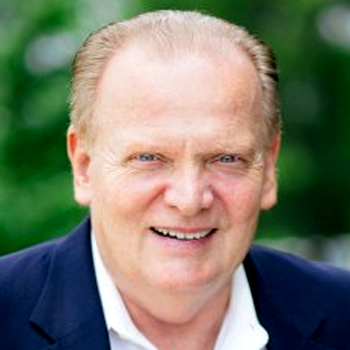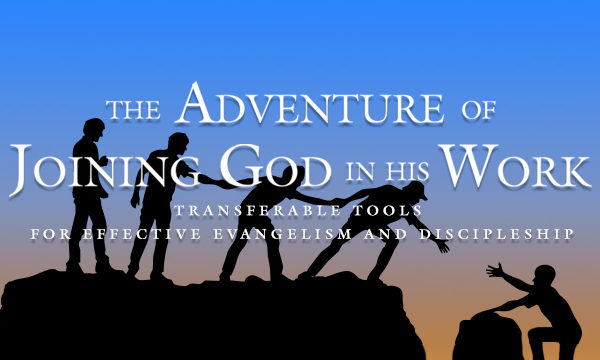Back to series



C.S. Lewis (1898–1963)
Clive Staples “C.S.” Lewis was born on November 29, 1898, in Belfast, Ireland. He died on November 22, 1963, the same day President John F. Kennedy was assassinated. He had only one sibling, a brother, Warren, who was three years older and with whom he remained friends all his life. C.S. Lewis’ earliest memories involve “endless books” in the study, dining room, cloakroom, in the bedrooms, and piled as high as his shoulder in the attic. On the often dreary days, time would be spent in reading and in imaginative games involving “dressed animals” and “knights in armor.” These were the subjects of his first novel, Boxen, written at the age of twelve.
Perhaps the most significant event of his early life was the death of his mother when he was age nine. Lewis says in his autobiography Surprised by Joy, “With my mother’s death all settled happiness... disappeared from my life. There was to be much fun, many pleasures, many stabs of joy; but no more of the old security. It was sea and islands now; the great continent had sunk like Atlantis.” At this point he lost not only his mother, but also, in effect, his father. Albert Lewis, perhaps out of grief, withdrew and decided to send both sons to a boarding school. Warren later wrote of his father’s choice, “With his uncanny flair for making the wrong decision, my father had given us helpless children into the hands of a madman.” In fact, the headmaster whom they called “Oldie” was later declared insane and the school closed.
During this period, Lewis attended church and attempted to take his beliefs seriously. He tried to pray every night but developed what he describes as a “false conscience” about it. He had been told that it was not enough to say your prayers but also to think about what you were saying. As soon as he had finished his prayers each night, he would ask himself, “Are you sure you were really thinking about what you were saying?” The answer was inevitably “No.” Then he would say his prayers again (and again). This led to insomnia and nightly torment and, Lewis says, “Had I pursued the same road much further, I think I should have gone mad.”
At a later boarding school, Chartres, encounters with a teacher who introduced him to the occult, as well as his doubts drawn from the problem of evil, concern over the similarities between Christianity and paganism, and sexual temptation were factors that led to a loss of faith. He lost his faith, virtue, and simplicity. Later he rid himself of unchastity, atheism, and the occult, but not another acquired habit: smoking.
When he was sixteen, Lewis was sent to be tutored by W.T. Kirkpatrick. “Kirk” or the “Great Knock” as he was sometimes called, was a brilliant teacher who taught Lewis to analyze, think, write, and speak clearly and logically. At their first meeting at the train station, young Jack (as he chose to call himself) made a comment to Kirk about not expecting the “wildness” of the scenery of Surrey. “Stop,” said Kirk. “What do you mean by wildness and what grounds do you have for not expecting it?” As he attempted an answer, it became increasingly clear that he had no distinct idea about the word “wildness” and that “insofar as I had any idea at all, ‘wildness’ was a singularly inept word.” “Do you not see, concluded the Great Knock, that your remark was meaningless?” Thinking that the subject had been dropped, Jack proceeded to sulk. Never was he more mistaken. Kirk proceeded to inquire about the basis of Jack’s expectations about the flora and geology of Surrey. It had never occurred to Jack that his thoughts needed to be based on anything. Kirk concluded, “Do you not see, then, that you had no right to have any opinion whatever on the subject?” This kind of interrogation was the tone of his whole stay with Kirk, and it was of great benefit to Lewis. In fact, much of the clarity of his writing, his careful choice of words, his considered arguments for the faith, and his later tutorial style were shaped during this period. Lewis says: “My debt to him is very great, my reverence to this day undiminished.” Some have said that many of his later works were written with a sense that Kirk (although by that time dead) was looking over his shoulder.
Many factors combined to lead him away from his atheism and to the robust faith of his later years. Once in a bookstore he bought a copy of George MacDonald’s Phantastes. As he read it, a “new quality” touched Lewis’ life, what he described at first as a “bright shadow,” but later came to realize was “holiness.” That night his imagination was “baptized” although “the rest of me, not unnaturally, took longer.”
Another factor contributing to his later conversion was the destruction of his “chronological snobbery.” This is defined as “the uncritical acceptance of the intellectual climate of our own age and the assumption that whatever has gone out of date is on that count discredited.” His friend Owen Barfield argued with him that we must always ask: “Why did it go out of date?” “Was it ever refuted (by whom, where, and how conclusively)?” Our own age is a mere period that has its own characteristic illusions, which can be corrected by reading old books. In fact, Lewis later argued that, “it is a good rule, after reading a new book, never to allow yourself another new one till you have read an old one in between. If that is too much for you, you should read one old one to every three new ones.” The only cure to chronological snobbery was to keep the “clean sea breeze of the centuries blowing through our minds and this can be done only by reading old books.”
One by one arguments against the faith were answered until already having his imagination “baptised” and his reason satisfied, he felt the “steady, unrelenting approach of Him whom I so earnestly desired not to meet.” Finally he gave in, knelt and prayed one night “the most dejected and reluctant convert in all England.” At this time he only became a Theist and began considering who Christ was and sorting through other religious views. His conversion to Christ was similarly unspectacular. He describes a trip in the sidecar of a motorcycle on the way to the Whipsnade Zoo. When he left for the zoo he did not believe that Christ was the Son of God; when he arrived at the zoo, he did believe that Christ was the Son of God, yet nothing extraordinary had happened along the way.
When Lewis came to faith in 1931, he was already teaching on the English faculty at Magdalen College, Oxford. Within two years, he had written his first apologetic work Pilgrim’s Regress (1933). Over the next thirty years Lewis produced a stream of books. He wrote capably in a number of types of literature: philosophical and apologetic works about faith in Christsuch as Miracles, The Problem of Pain, Abolition of Man, and Mere Christianity; more imaginative books on the faith such as Screwtape Letters and The Great Divorce; fictional children’s books, The Narnia Chronicles, his so-called “space trilogy” (Out of the Silent Planet, Perelandra, and That Hideous Strength), and Till We Have Faces. In English literature he pursued excellence, and his works such as Allegory of Love and English Literature in the Sixteenth Century Excluding Drama are still widely read and highly regarded. He also wrote numerous poems.
During his life, he established and maintained many close friendships. One group, “The Inklings,” met in Lewis’ rooms on Thursday nights during the years 1933-50, and then the meeting place moved to the “Eagle and the Child” pub until Lewis died in 1963. Regular participants were C.S. Lewis’ brother, Warren, J.R.R. Tolkien, Dr. R.E. Harvard and Charles Williams. Other attendees included Nevill Coghill, Hugo Dyson, Owen Barfield and Adam Fox. The focus of each meeting was a reading from one of the group’s works in progress. Tolkien would read a draft of The Lord of the Rings, Lewis a draft of The Great Divorce or Warren Lewis’ work on Louis XIV and so on. None of the group’s members were shy to criticize, and lively discussions followed, always punctuated with much laughter.
C.S. Lewis’ marriage to Joy Davidman has been powerfully portrayed in the B.B.C. and Hollywood versions of Shadowlands. The latter version starring Anthony Hopkins and Deborah Winger contains a number of inaccuracies but Douglas Gresham, C.S. Lewis’ stepson, described it as “emotionally true.” When Jack and Joy married, she had cancer and a long life was not expected. However, when a remarkable remission occurred, they experienced two years of great happiness before the cancer returned, and Joy died in 1960.
On September 8, 1947, Lewis’ picture appeared on the front cover of Time magazine. The heading read “OXFORD’S C.S. LEWIS His Heresy: Christianity.” What amazed the secular world was that this Oxford don would write a philosophical defense of miracles. During WW II, Lewis’ B.B.C. broadcast of a series (that later became the book Mere Christianity) made his voice widely recognized, second only to that of Winston Churchill.
The appeal of C.S. Lewis’ writings continues to be the way in which he combines reason and imagination. He argued that “Christianity, if false, is of no importance, and, if true, of infinite importance. The one thing it cannot be is moderately important.” Whether in the realm of reason or imagination, in personal or public life, Lewis maintained,
I believe in Christianity as I believe that the sun has
risen—not only because I see it, but because by it I see
everything else.

Arthur W. Lindsley
Senior Fellow for Apologetics, CSLI Arthur W. Lindsley is the Vice President of Theological Initiatives at the Institute for Faith, Works, & Economics. He has served at the C.S. Lewis Institute since 1987 both as President until 1998 and currently as Senior Fellows for Apologetics. Formerly, he was director of Educational Ministries at the Ligonier Valley Study Center, and Staff Specialist with the Coalition for Christian Outreach. He is the author of C.S. Lewis's Case for Christ, True Truth, Love: The Ultimate Apologetic, and co-author with R.C. Sproul and John Gerstner of Classical Apologetics, and has written numerous articles on theology, apologetics, C.S. Lewis, and the lives and works of many other authors and teachers. Art earned his M.Div. from Pittsburgh Theological Seminary and a Ph.D. in Religious Studies from the University of Pittsburgh. COPYRIGHT: This publication is published by C.S. Lewis Institute; 8001 Braddock Road, Suite 301; Springfield, VA 22151. Portions of the publication may be reproduced for noncommercial, local church or ministry use without prior permission. Electronic copies of the PDF files may be duplicated and transmitted via e-mail for personal and church use. Articles may not be modified without prior written permission of the Institute. For questions, contact the Institute: 703.914.5602 or email us.
COPYRIGHT: This publication is published by C.S. Lewis Institute; 8001 Braddock Road, Suite 301; Springfield, VA 22151. Portions of the publication may be reproduced for noncommercial, local church or ministry use without prior permission. Electronic copies of the PDF files may be duplicated and transmitted via e-mail for personal and church use. Articles may not be modified without prior written permission of the Institute. For questions, contact the Institute: 703.914.5602 or email us.
-
Recent Podcasts
The Emergence of Evangelical Discipleship
by Aimee Riegert, Tom Schwanda on July 11, 2025Evangelical Discipleship: What can we learn from the...Read More
-
Reasoning Requires Faith – Jeffrey Geibel’s Story
by Jeffrey Geibel on July 4, 2025
-
Fix Your Eyes Upon Jesus
by Steven Garber, Aimee Riegert on June 27, 2025
-
Recent Publications
Are Miracles Possible
by Christopher L. Reese on June 1, 2025The 21st century has provoked many conversations and...Read More
-
Is God Just, Not Fair?
by Jennifer Rothschild on May 15, 2025
-
Seeking Dietrich Bonhoeffer
by Joseph A. Kohm on April 29, 2025
0
All Booked
0.00
All Booked
0.00
All Booked
24720
The Adventure of Joining God in His Work Live Online Small Group 7:00 PM CT
https://www.cslewisinstitute.org/?event=the-adventure-of-joining-god-in-his-work-live-online-small-group-700-pm-ct&event_date=2025-09-16®=1
https://www.paypal.com/cgi-bin/webscr
2025-09-16

Next coming event
Days
Hours
Minutes
Seconds
The Adventure of Joining God in His Work Live Online Small Group 7:00 PM CT
On September 16, 2025 at 7:00 pmSpeakers

Arthur W. Lindsley
Senior Fellow for Apologetics, CSLI
Team Members





